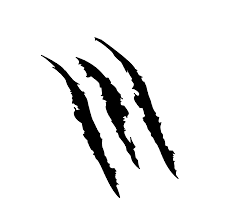claw
英 [klɔː]
美 [klɔ]
- n. 爪;螯,钳;爪形器具
- vi. 用爪抓(或挖)
- vt. 用爪抓(或挖)
CET4 TEM4 考 研 CET6
claw 爪子来自PIE*skel,弯,钩,词源同close,scoliosis(脊柱侧弯)。
- claw (n.)
- Old English clawu, earlier clea, "claw, talon, iron hook," from Proto-Germanic *klawo (cognates: Old Frisian klawe "claw, hoe," Middle Dutch klouwe, Dutch klauw, Old High German klawa, German Klaue "claw"). Claw-foot in reference to furniture is from 1823; claw-and-ball attested from 1893. Claw-hammer attested from 1769.
- claw (v.)
- Old English clawian "to scratch, claw," from the same root as claw (n.). Related: Clawed; clawing. Compare Dutch klaauwen, Old High German klawan, German klauen. To claw back"regain by great effort" is from 1953; as a noun, an act of this, from 1969.
- 1. The dogs continued to paw and claw frantically at the chain mesh.
- 那些狗继续用爪子疯狂地抓铁丝网。
来自柯林斯例句
- 2. It has three pairs of legs, each ending in a large claw.
- 它有3对腿,每条腿上都有一只巨爪。
来自柯林斯例句
- 3. The Chancellor will try to claw back £3.5 billion in next year's Budget.
- 财政大臣在明年的预算中将争取收回35亿英镑。
来自柯林斯例句
- 4. They will eventually be able to claw back all or most of the debt.
- 他们最终能捞回全部或大部分的债务。
来自柯林斯例句
- 5. In the meantime his generals will want to claw back some of their old influence.
- 与此同时,他的将军们还想东山再起。
来自柯林斯例句
[ claw 造句 ]
